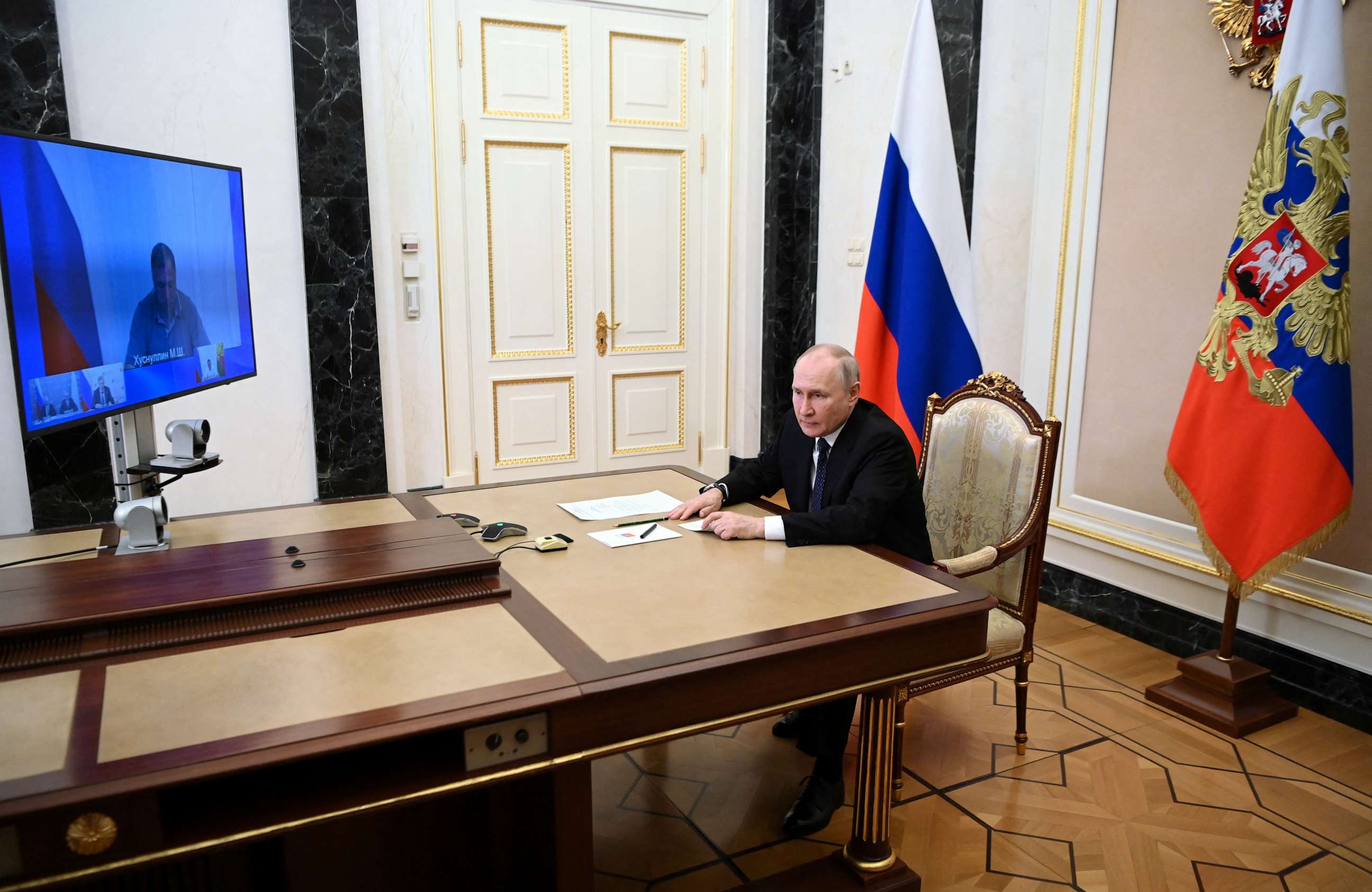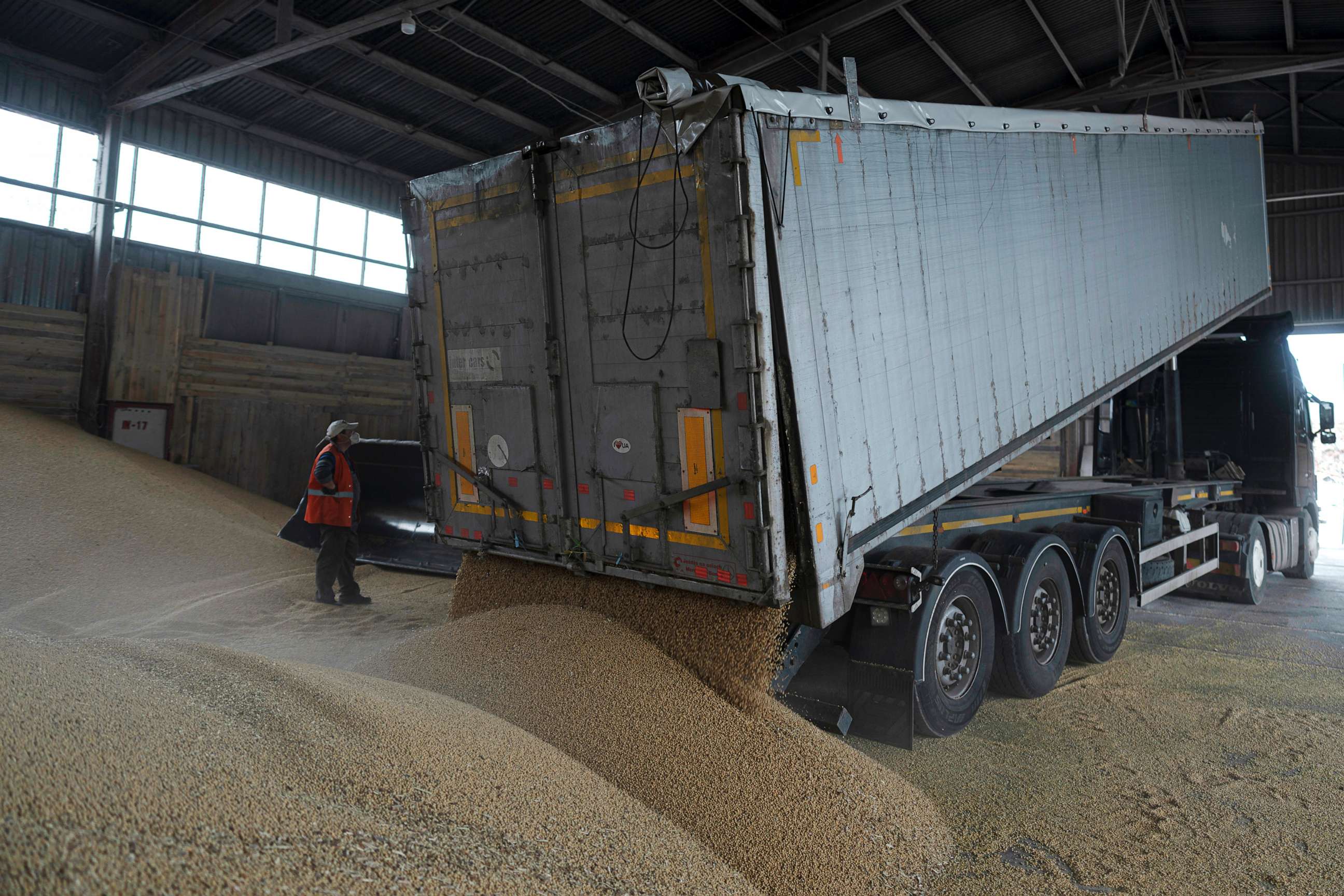US officials blast Russia's decision to exit Ukraine grain export deal as food prices jump
Moscow's announcement came in the aftermath of a strike on a key Crimea bridge.
After Russia announced it would end its participation in a critical deal that has allowed ships to safely export millions of tons of Ukrainian grain through the Black Sea, top Biden administration officials on Monday accused Moscow of weaponizing food.
But even as they denounced the decision, they signaled there was little the U.S. could do alleviate the hunger crisis in Africa and the Middle East they said Russia's move would only exacerbate.
"Russia's decision to resume its effective blockade of Ukrainian ports and prevent this grain from getting to markets will harm people all over the world," National Security Council spokesperson John Kirby said during a White House briefing. "Russia will be fully and solely responsible for the consequences of this military act of aggression."
Both Kirby and Secretary of State Antony Blinken noted that grain prices had risen in the immediate wake of Russia's withdrawal from the deal, saying that although the U.S. and its partners would explore alternate export routes, there was no other way to move the same quantity of exports.
"There's no possible way mathematically we're going to get as much grain out now," Kirby said.
Blinken predicted the development would have a "profound chilling effect" on shipping companies.
"Russia is ending this initiative and sending a message that grain cannot and other food products cannot leave Ukraine unimpeded," he said.

The Biden administration had not played a direct role in the deal, which was first brokered by the United Nations and Turkey last July, but officials see Moscow's reneging as part of play to score reprieves from financial penalties levied against it in response to its invasion of Ukraine -- a concession the U.S. and the allies are currently unwilling to make.
Russia halted its participation in the agreement just hours after it blamed Ukraine for an overnight drone strike on the Kerch Bridge, a vital Russian supply line linking occupied Crimea to mainland Russia.
Although Ukrainian officials have suggested its forces were indeed behind the attack that killed two civilians, Biden administration officials declined to offer a public assessment.
"We are not in a position to attribute the attack to any particular party at this point," Kirby said.

Kirby also said while it was "too soon to know whether that attack on that bridge is going to have any significant military impact on their ability to continue to fight this war," U.S. officials had not seen any indication that the strike had effected Russia's defensive posture or its military capabilities in the region.
In a televised address, Russian President Vladimir Putin described the incident as a "terror attack" carried out by Kyiv and enabled the U.S. and other allies of Ukraine, but the Kremlin insisted that it was not a factor in its decision to pull out of the grain deal.
Instead, Russia says its chief reason for ending the arrangement is that promises to free up its own agricultural exports have gone unfulfilled -- claims the U.S. and international organizations deny. Moscow has complained about the agreement since its implementation and previously withdrew from it for a short period of time.
In an address of his own, Ukrainian President Volodymyr Zelenskyy said he had submitted a proposal to the Turkish president and the Secretary-General of the United Nations to carry on the grain deal without Russia's participation and would work with the mediators on next steps.
"Even without the Russian Federation, everything must be done so that we can use this Black Sea corridor," he said.
Earlier on Monday, NATO Secretary-General Antonio Guterres mourned Moscow's exit.
"Ultimately, participation in these agreements is a choice. But struggling people everywhere and developing countries don't have a choice," he said in a statement. "Hundreds of millions of people face hunger and consumers are confronting a global cost-of-living crisis. They will pay the price."
ABC News' Ben Gittleson and Will Gretsky contributed to this report.




